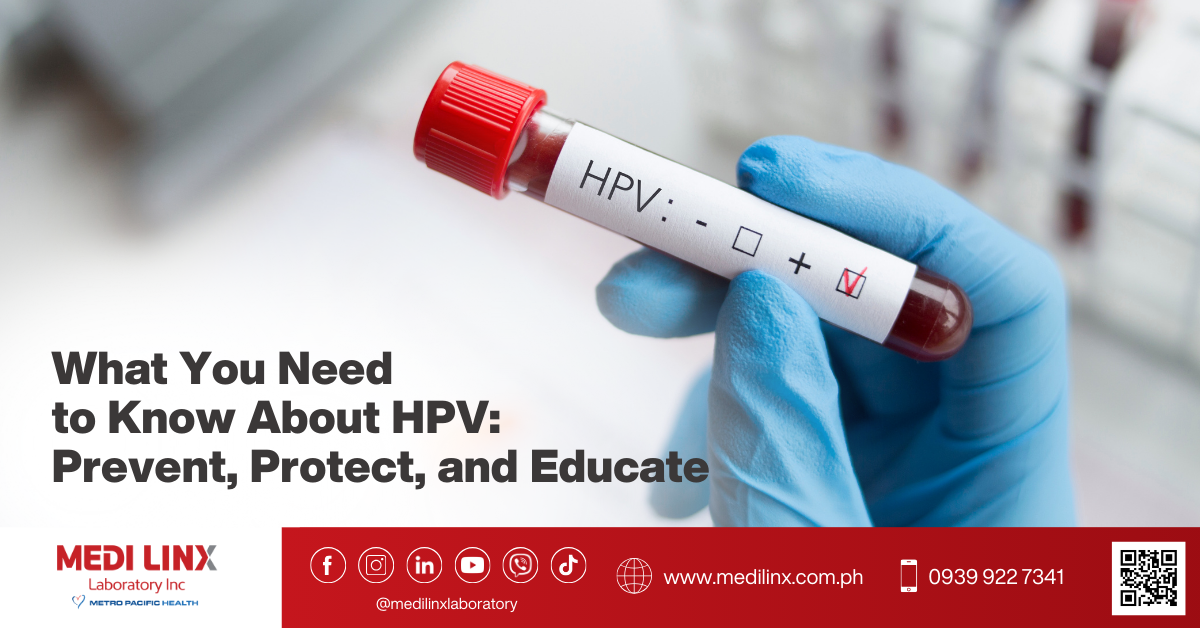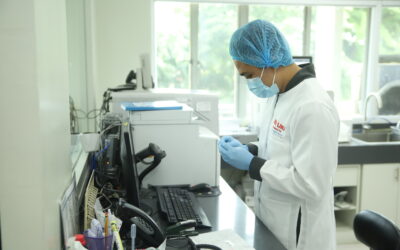
Human Papillomavirus (HPV) Genotyping Test
HPV, short for human papillomavirus, is the most common sexually transmitted infection (STI), which causes mucous membrane growth (warts). Some variants of HPV are harmless, while some can cause cancer and genital warts.
Genital HPVs are not uncommon. Sexually active people get HPV at some point; most do not have symptoms.
Common HPV symptoms include:
- Genital warts: On the skin, they look like cauliflower-like bumps or tiny stemlike protrusions. For women, they appear mainly on the vulva, near the anus, on the cervix, or in the vagina.
- Common warts: They appear on the hands, and look like rough, raised bumps.
- Flat warts: They appear to be flat-topped, slightly raised lesions and appear on the surface of the skin.
Human Papilloma (HPV) Causes, Transmission, and Risk Factors
Causes and Transmission
- Direct contact for warts
- Skin-to-skin contact through a small tear in the skin, cut, or abrasion through which the virus enters
- Sexual intercourse for genital HPV
- Anal sex and genital skin-to-skin contact
- Oral sex for some HPV infections
- Pregnancy: If you are a mother and have an HPV infection with genital warts, your baby may get infected.
Risk Factors
- High number of sexual partners: If you have several sexual partners, you have a higher risk of getting an HPV infection. If you have sexual contact with a partner who has also had several sexual partners, your risk is even more increased.
- People Assigned Female At Birth (AFAB): AFABs can get genital warts if they suffer from HPV. If untreated, high-risk HPV can lead to cervical cancer. It is possible to prevent this through regular Pap smears and HPV tests.
- Those Assigned Male At Birth (AMAB): HPVs in AMABs can result in penis, anus, neck, and head cancers, although they are rare. They are also at risk for genital warts.
HPV Virus Test
Before The Test
- Ensure you do not take the test while undergoing menstruation
- Refrain from using birth control foams or vaginal medicine for two days before the test
- Avoid using douche within two days of the test
- Do not have sex two days before the test day itself
- Urinate before the actual test procedure happens
During The Test
During the test, your healthcare provider will inspect your vulva, vagina, cervix, rectum, and pelvis with a speculum and get a cell sample.
Other Tests You Can Take
- Complete Blood Count Test (CBC): Although it does not have a direct link to HPV, the CBC test can help you screen for other viral infections and even sexually transmitted diseases like HPV due to individual risk factors.
- HIV Detection Test: In this test, you take a blood sample; this sample is assessed if the patient has HIV. Through early detection and diagnosis, transmission risk can be reduced and boost the efficacy of treatment for HIV.
- Pap Smear: The pap smear helps screen for cervical cancer. It may feel uncomfortable, but it doesn’t hurt. You can have this procedure alongside the HPV genotyping test.
FAQs
Can HPV be cured?
HPVs do not have a cure, but there are treatments for health complications they can cause, like warts, cervical changes, and even cancer.
Can I live a normal life with HPV?
Yes, you can live an everyday life even if you have an HPV. It is still possible to still have an active sex life even if you have it.
Get Peace of Mind With Our HPV Test!
Medi Linx, a laboratory in Quezon City, provides over 400 laboratory tests. Book your HPV test with us via our Virtual Lab today for peace of mind and timely results! For other inquiries, please call our QC Lab at 0939-9227341.






